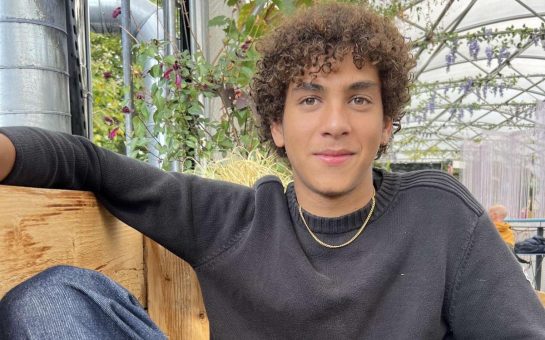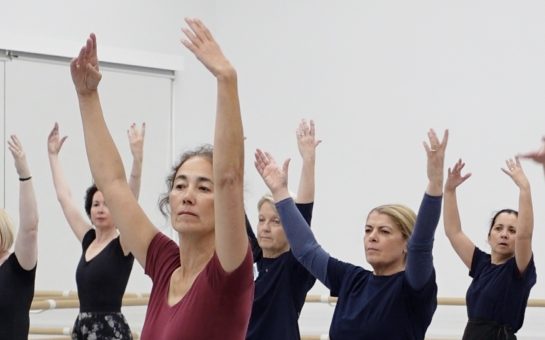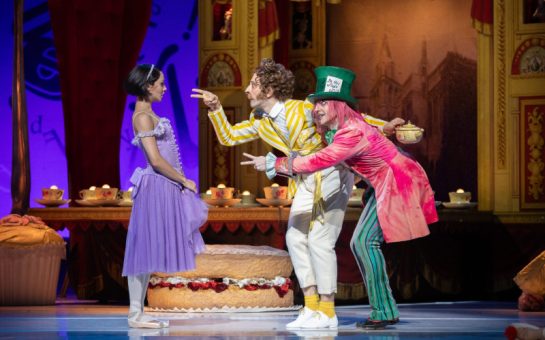For an internationally-renowned dancer, Thiago Soares is very understated. Sitting in a small meeting room just off Tottenham Court Road, he starts stretching and touching his toes before apologetically asking if its ok if he eats a Pret baguette during our interview.
I can hardly say no to an award-winning principal dancer at the Royal Opera House who has performed all over the world. Also, it gives me an excuse to eat a biscuit.
We are here to talk about Felipe Braga’s documentary Principal Dancer, which premiered earlier this month in London. It stars Thiago Soares and goes behind the scenes of the Royal Opera House and his performances in Rio de Janeiro and Sao Paolo.
Speaking about seeing himself on the big screen Thiago said: “I had seen the film before, but seeing in that cinema perspective you realise how grand a project was and how beautiful it was, also a lot more exposed as well because you just see yourself so huge.
“It is also quite sentimental for me because it takes me back to that time-period, you think it is crazy that I got through that.”
Not only was he going through a divorce and moving house at the time, he was rehearsing at the Royal Opera House and preparing for his celebration show in Brazil. While most people would crumble under that level of stress and pressure, Thiago seemed to thrive on it.
He said: “When you are extremely busy emotionally and professionally I have learnt that there is a quite brilliant kind of abandon that happens to you because you just don’t care. Because you just have so much going that you feel like you have to play this day by day and see how I get through it.”
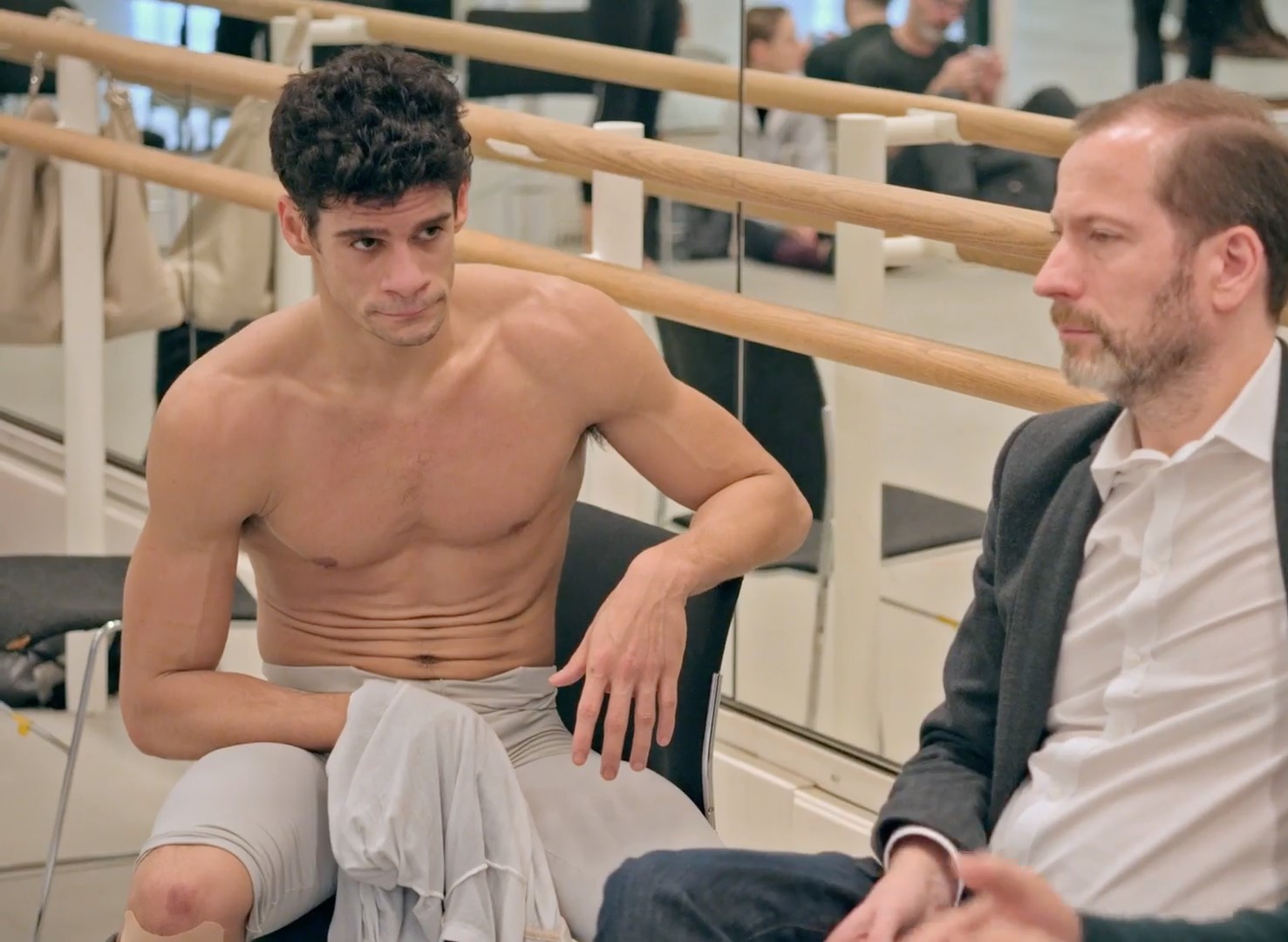
DAY BY DAY: The dancer was going through a difficult time during the filming of the documentary.
You really see that knife edge in the film. There are long shots of Thiago recovering from a particularly gruelling day of training where you really wonder how he is going to get up tomorrow and do it all again.
Thiago said: “There were moments where I thought maybe he should not have been there or maybe if it was another dancer they would not have liked that.
“There was fight that he oversaw in the dressing room with one of my best friends that it was just a way that I didn’t want him to investigate because I was very exposed there, but I had to be honest because if I am going to do this and investigate your life that is the reality and that is happening.”
This focus on the reality of what it is to be a dancer is crucial in getting more people in to ballet according to Thiago. As a latecomer to ballet himself, coming to ballet at the age of 15, he never knew who Nureyev was and ballet was not accessible to him.
“This film I feel allows people to go in to the world of ballet without a particular agenda. You are just investigating the life of this professional dancer playing at an international level but with normal tasks and difficulties and challenges. Let people see what it is and let them judge and decide how tough it is,” Thiago said.
As an internationally-renowned dancer he has become a role model at home and abroad but especially in Brazil where macho culture and ballet may not always sit easily together.
He said: “I think Brazil at that time really had that macho mentality of the idea of man, we had idols like football players and singers and pop idols, but we did not have the figure of a ballet dancer.
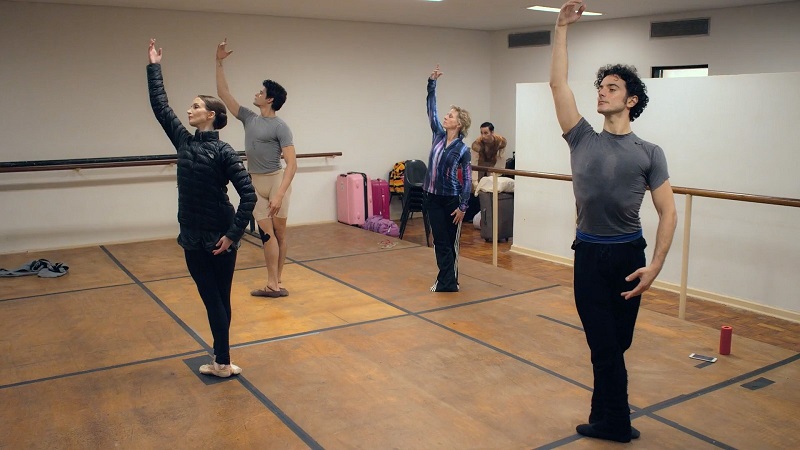
ROLE MODEL: The documentary shows the gruelling schedule of professional ballet dancers.
“And I think because of the way my career went I kind of had an acceptance in people’s eyes because they knew that it wasn’t about my sexuality or the fact that I was macho or not macho or gay or not gay it wasn’t about that, it was just this boy that became a dancer.
“The fact that I was straight and I was just this boy who danced hip hop and then started doing ballet. Somehow Brazil really embraced my story and they kind of felt that they wanted to investigate my career more and more.”
Although a lot of progress has been made in Brazil, some are worried about the increasing political turbulence as the ‘Trump of the Tropics’, Jair Bolsonaro, starts his four-year term.
Thiago said: “I don’t believe that any politician nowadays that has any intellectual maturity and understanding about what is going in the world is going to attack the arts or the cultural sectors of the country because if they do that then obviously they are not very with it.
“I don’t believe, and I don’t want to believe, that that will happen but what I do know is that there is a moment of change. It is a very dedicated period where we are establishing what is going to happen in the next four years. I am a soldier of the arts and whatever I can do in terms of passing my message across and keep doing what I’m doing that is how I am going to fight.”
Primeiro Bailarino will screen at the Royal Opera House on 21 January. Further information can be found here.
Feature image by Daryan Dornelles
